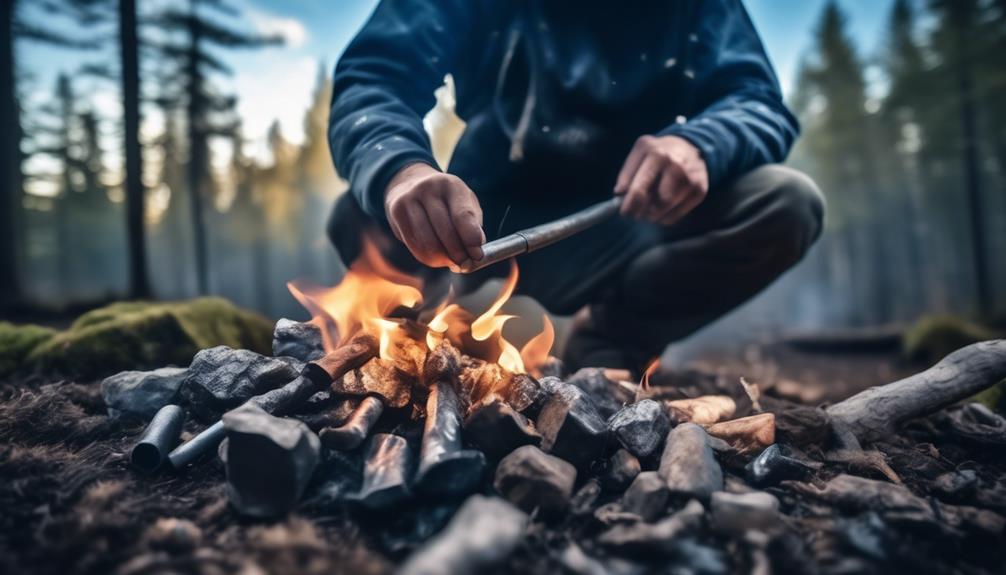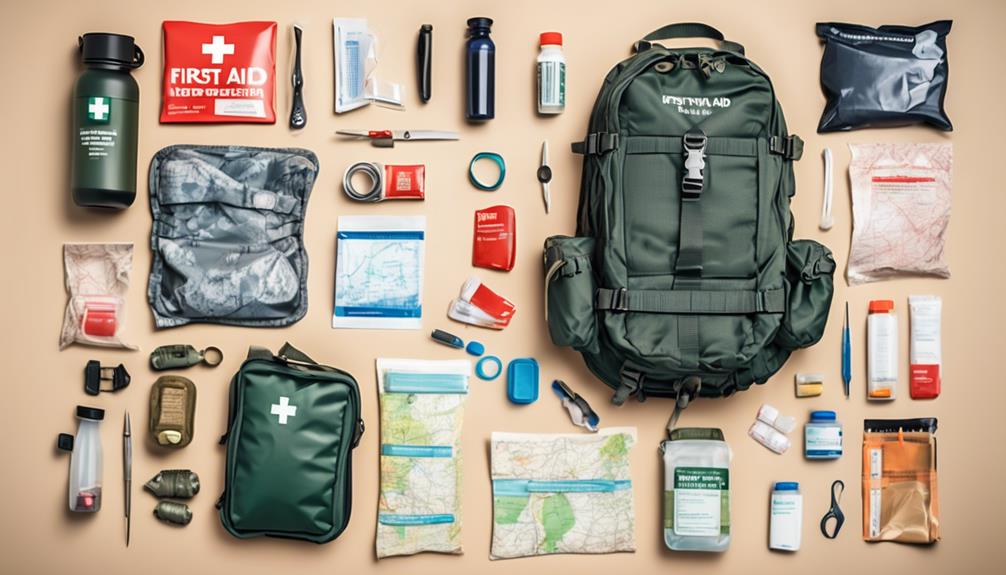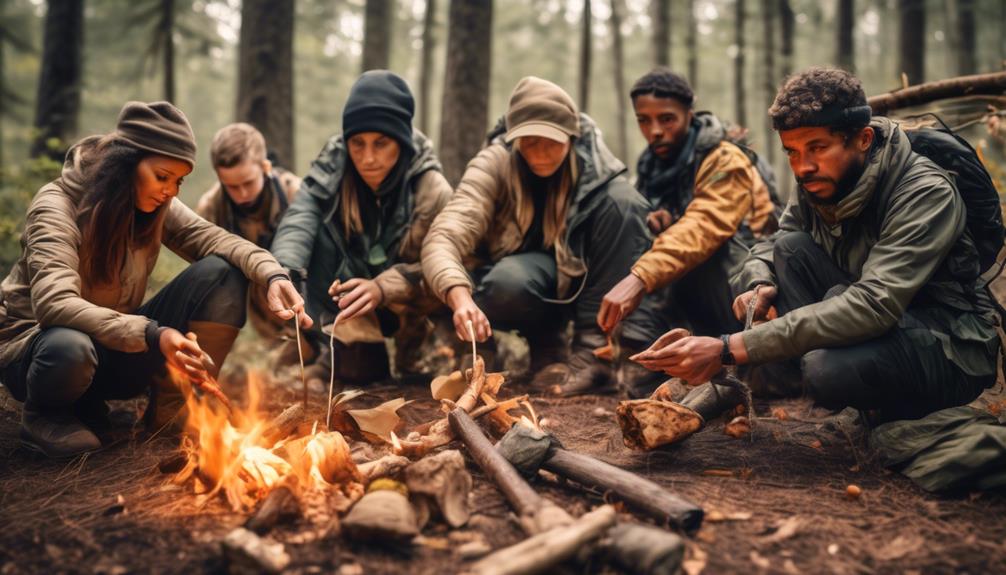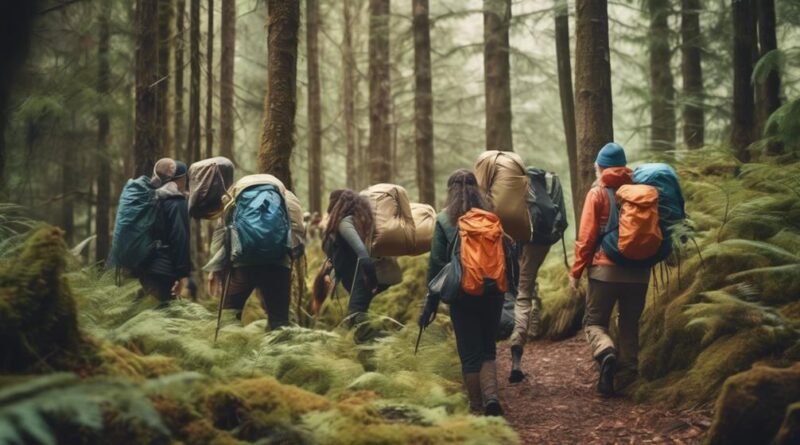Beginner's Guide to Survival Training Holidays
So, you've decided to step out of your comfort zone and embark on a survival training holiday. You may be wondering what exactly this entails and how to prepare for such an adventure.
If you're looking to gain valuable outdoor skills while immersing yourself in nature, then a survival training holiday might just be the perfect fit for you. But before you lace up your boots and head out into the wild, there are a few essential things you need to know to ensure a safe and fulfilling experience.
What Are Survival Training Holidays?
Survival training holidays are immersive experiences designed to teach you essential outdoor skills in a real-life setting. These holidays offer different types of training, catering to various skill levels and interests. Whether you're a beginner looking to learn the basics of survival or an experienced outdoor enthusiast seeking advanced training, there's a program out there for you.
Popular destinations for survival training holidays include the rugged terrain of the Rocky Mountains in the United States, the vast expanses of the Australian Outback, and the dense rainforests of Costa Rica. Each location offers unique challenges and learning opportunities, allowing you to immerse yourself in diverse environments while honing your survival skills.
When it comes to the types of survival training holidays, you'll find options ranging from wilderness survival and bushcraft to primitive skills and urban survival. Wilderness survival training typically takes place in remote natural settings, teaching you how to find shelter, forage for food, and navigate the wilderness. Bushcraft focuses on using natural resources to thrive in the wild, emphasizing traditional outdoor skills such as fire-making and shelter-building. Primitive skills training delves into ancestral methods of survival, while urban survival training equips you to handle emergencies and disasters in urban environments.
Choosing the right type of survival training holiday and destination depends on your interests, skill level, and the experience you're seeking. Whether you're drawn to the untamed wilderness or want to learn how to survive in urban scenarios, there's a survival training holiday tailored to your needs.
Benefits of Survival Training Holidays
Exploring the wilderness during a survival training holiday can enhance your outdoor skills and boost your confidence in handling unexpected situations. The benefits of embarking on such an adventure extend far beyond just learning how to survive in the wild. Here are some of the advantages you can expect from participating in a survival training holiday:
- Self-Reliance: Immersing yourself in an outdoor adventure where you rely on your skills to navigate and survive fosters a sense of self-reliance. You'll learn to trust your instincts and capabilities, which can be empowering and beneficial in various aspects of your life.
- Problem-Solving Skills: Facing challenges in a natural setting can significantly improve your problem-solving abilities. You'll develop a resourceful mindset as you learn to adapt and overcome obstacles, skills that are transferrable to everyday situations.
- Physical Fitness: Engaging in survival training holidays often involves physically demanding activities such as hiking, building shelters, and foraging for food. This type of outdoor adventure serves as an excellent way to improve your physical fitness while enjoying the natural environment.
- Personal Growth: The experience of surviving in the wild can lead to personal growth. You may discover newfound strengths and capabilities within yourself, fostering a sense of accomplishment and resilience that extends beyond the duration of the training holiday.
Participating in survival training holidays offers a unique opportunity for personal development, allowing you to enhance your outdoor skills while fostering personal growth in a challenging and rewarding environment.
Essential Skills for Survival Training

When preparing for survival training, it's crucial to focus on developing essential skills that will equip you for navigating and thriving in the wilderness. Building shelters is a fundamental skill that can protect you from the elements and provide a safe place to rest. You'll learn to construct shelters using natural materials, such as branches and leaves, or with whatever resources are available in the environment.
Starting fires is another vital skill for survival. You'll be taught various methods to create fire without modern tools, including using friction or flint and steel. Mastering this skill is essential for warmth, cooking food, purifying water, and signaling for help.
Wilderness navigation is key to finding your way in unfamiliar terrain. You'll be taught how to use a map and compass, as well as natural indicators like the sun and stars, to orient yourself and reach safety.
Foraging for food is also a crucial skill. You'll learn to identify edible plants, fungi, and insects, as well as how to safely hunt or trap small game. This knowledge can sustain you when food supplies are scarce.
Choosing the Right Destination
Select a destination that aligns with your level of experience and the specific skills you aim to develop during your survival training. When choosing the right destination for your survival training holiday, consider the following factors:
- Wilderness Locations: Look for destinations that offer diverse wilderness environments such as dense forests, rugged mountains, or expansive deserts. These locations provide opportunities to learn different survival techniques and tactics based on the specific terrain and its challenges.
- Climate Considerations: Consider the climate of your chosen destination. Training in a variety of climates, from hot and arid to cold and snowy, will prepare you for a range of survival scenarios. It's important to experience and understand how to adapt in different weather conditions.
- Availability of Natural Resources: Seek out destinations with abundant natural resources such as water sources, edible plants, and wildlife. Learning to identify, gather, and utilize these resources is essential for survival in the wild.
- Accessibility to Expert Guidance: Look for destinations where you can access expert guidance and instruction from experienced survival trainers. Having access to knowledgeable mentors can significantly enhance your learning experience and ensure your safety during training.
Packing Tips for Survival Training

Consider the essential items to pack for your survival training to ensure you're fully prepared for the challenges ahead.
When it comes to gear essentials, prioritize items such as a reliable multi-tool, fire starter, lightweight tent or tarp, water purification tablets or filter, and a first aid kit. These items will form the backbone of your survival gear, providing you with the tools needed to secure shelter, water, and basic sustenance in the wild.
Additionally, include a sturdy backpack to carry your gear and supplies, a headlamp or flashlight with extra batteries, and a signaling device like a whistle or mirror for emergencies.
In terms of clothing, pack moisture-wicking layers, a waterproof jacket, and durable hiking boots suitable for rough terrain. Remember to bring a hat for sun protection and gloves for handling gear and protecting your hands.
When it comes to wilderness navigation, a reliable map of the area and a compass are indispensable tools. Familiarize yourself with these tools before your trip, and consider taking a basic navigation course to ensure you can effectively use them in the field.
Alternatively, a GPS device can provide an added layer of navigation support, but always carry a physical map and compass as backups in case of technology failure.
Safety Measures During Survival Training
Ensure your safety during survival training by prioritizing situational awareness and proactive risk management. Safety precautions are crucial to mitigate potential hazards and ensure a successful training experience.
Here are some essential safety measures to consider:
- Emergency Response Plan: Develop a comprehensive emergency response plan with clear protocols for different scenarios. This plan should include communication procedures, designated meeting points, and emergency contact information. Regularly review and practice the plan with your group to ensure everyone is familiar with the procedures.
- Wilderness First Aid Training: Prioritize learning wilderness first aid techniques before embarking on survival training. Understanding how to manage injuries, illnesses, and emergencies in remote environments can make a significant difference in critical situations. Consider enrolling in a wilderness first aid course to gain practical skills and knowledge.
- Navigation Skills: Proficiency in navigation is fundamental for staying safe during survival training. Acquire and hone essential navigation skills such as map reading, using a compass, and understanding natural signs. Familiarize yourself with the terrain and practice navigation techniques to confidently find your way in the wilderness.
- Regular Safety Checks: Conduct regular safety checks on your equipment, surroundings, and personal well-being. Ensure that gear is functioning properly, monitor weather conditions, and assess your physical condition. Maintaining a proactive approach to safety can prevent potential issues and keep you prepared for unexpected challenges.
Finding the Best Survival Training Programs

Looking for the best survival training programs? When it comes to finding the right program, consider the various options available to ensure it aligns with your needs. Program options can range from basic wilderness survival to advanced tactical training, so it's essential to choose one that matches your skill level and interests.
Additionally, consider the training duration. Some programs offer weekend workshops, while others provide more extensive training over several weeks. Determine the time commitment you can realistically make before selecting a program.
Cost considerations are also crucial. While some programs may seem affordable at first glance, it's essential to evaluate the overall value. Look for programs that offer a good balance between cost and the quality of training provided. Additionally, inquire about any additional costs that may arise, such as equipment or certification fees.
Instructor qualifications play a significant role in the effectiveness of a survival training program. Research the backgrounds of the instructors to ensure they have the necessary experience and credentials. Look for programs led by instructors with relevant military, outdoor, or survival training backgrounds. Their expertise will greatly impact the quality of the training you receive.
Ultimately, finding the best survival training program requires careful consideration of program options, training duration, cost, and instructor qualifications. By thoroughly evaluating these factors, you can select a program that best suits your needs and ensures a fulfilling and educational experience.
Making the Most of Your Survival Training Holiday
Get ready to maximize your survival training holiday by immersing yourself in hands-on learning experiences. To make the most of your time, consider the following tips:
- Exploration Techniques: Engage in activities that simulate real-life survival scenarios, such as learning to read maps, using a compass, and understanding terrain features. Practice tracking and observation skills to enhance your ability to navigate and survive in the wilderness.
- Wilderness Navigation: Take advantage of opportunities to learn basic wilderness navigation skills. This may include using GPS devices, landmarks, and natural signs to find your way in unfamiliar terrain. Learn how to create and follow a route plan, and understand how to use topographic maps to navigate effectively.
- Practical Survival Skills: Participate in hands-on workshops to learn essential survival skills, such as building shelters, starting fires, finding and purifying water, and identifying edible plants. Practice these skills in different environments to gain confidence in your ability to survive in various scenarios.
- Team Building Activities: Engage in group activities that require teamwork and problem-solving. These activities can help you develop communication skills, leadership abilities, and the capacity to work effectively with others in challenging situations.
Frequently Asked Questions
Are There Any Age Restrictions for Participating in Survival Training Holidays?
There aren't any age restrictions for survival training holidays, offering program flexibility for participants of all ages. Parental involvement is recommended for younger participants to enhance the overall experience and safety during the training.
Can I Bring My Own Survival Gear or Is It Provided by the Program?
You can bring your own survival gear, but the program also provides options. There may be limitations on what the program provides, so it's best to check with them beforehand to ensure you have everything you need.
What Kind of Medical Training or Certification Is Required for Participating in Survival Training Holidays?
You'll need wilderness first aid and basic life support certification to participate in survival training holidays. These skills are crucial for handling medical emergencies in the wilderness. Additionally, having survival skills and outdoor navigation techniques will also be beneficial.
Are There Any Specific Dietary Restrictions or Considerations for Survival Training Holidays?
For survival training holidays, dietary restrictions and food considerations are essential for your safety and well-being. It's important to plan for any allergies, pack non-perishable items, and prioritize nutrition to sustain your energy throughout the training.
How Do I Prepare Mentally and Emotionally for the Challenges of Survival Training Holidays?
To prepare mentally and emotionally for survival training holidays, focus on mental preparation and building emotional resilience. Visualize success, practice mindfulness, and cultivate a positive mindset. Embrace the challenges as opportunities for growth and learning.
Conclusion
Now that you have the essential skills and knowledge for survival training holidays, it's time to pack your bags and choose the right destination. Remember to prioritize safety and make the most out of your experience.
Whether it's learning to build a shelter, start a fire, or navigate through the wilderness, a survival training holiday can be a rewarding and life-changing experience.
So go out there and embrace the adventure!
